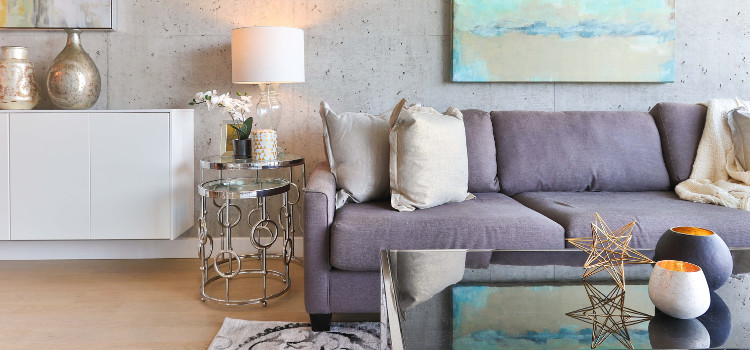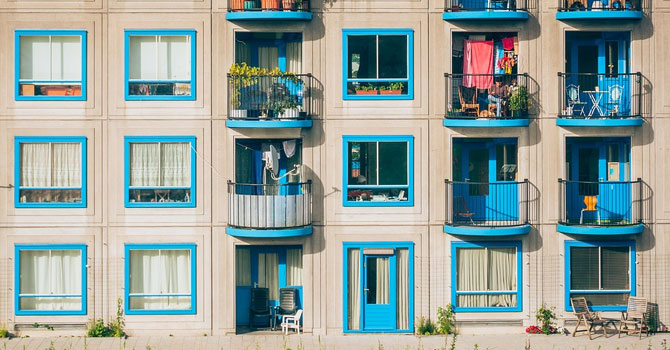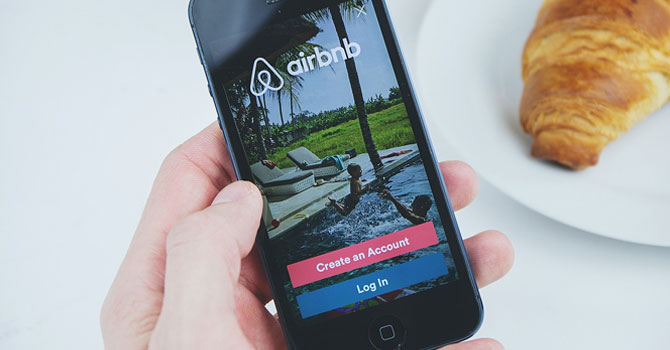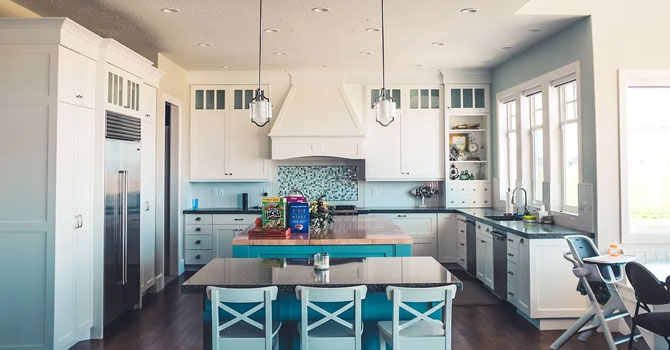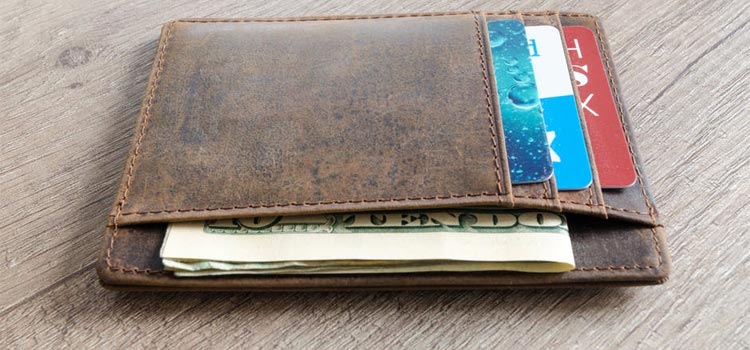If you have a house, apartment, condo, or even a spare room, you might want to rent it out and learn how to start an Airbnb business to pull in some side cash or even make it your main source of income.
- Inbox Dollars - Get paid to check your email. $5 bonus just for signing up!
- Survey Junkie - The #1 survey site that doesn't suck. Short surveys, high payouts, simply the best.
- Nielsen - Download their app and get paid $50!
Ever since the company now known as Airbnb was founded in 2008, millions of property owners and hosts have been making money off of renting out their properties temporarily to short-term visitors.
Some have even acquired properties with the main purpose of listing it on Airbnb to make some money.
In today’s article, learn how to start your own Airbnb business: what to consider before starting, how to make your listing attractive to the right customers, and how to be successful in this business.
How To Start Your Airbnb Business
Before you start your business, you need to understand that while renting out your property has the potential to make you a living, it’s a huge undertaking that requires commitment.
That is, it takes plenty of time, effort, and focus to create and maintain a successful Airbnb business. If you don’t think you can spare a lot of these, maybe this business isn’t for you.
Here are the steps to take to start running your Airbnb business:
1. Research the specific laws in your city.
The laws related to renting out a property on Airbnb differ among cities.
For instance, for short-term rentals (less than 30 nights), San Francisco requires that the permanent resident (that would be you) be present when someone rents your property for the entire duration of their stay. You are also required to register as a business and pay a transient occupancy tax.
It pays to know what the laws are so you can avoid paying hefty fines. You can look up the gist of short-term rental laws for major US cities in this page, but for more complete information, it’s best to contact your local government directly.
2. Read up on the rules and contract provisions if you’re renting.
If you’re only renting the property that you’re listing on Airbnb, make sure you aren’t any violating any of the terms of your rental agreement.
Landlords generally don’t allow renters to sublet, and if they do, they normally have certain rules and safeguards in place to protect themselves and their property. Find out all you can so you don’t have to worry when you do start your Airbnb business.
3. Create a solid business plan.
Wanting to succeed is one thing, but planning to succeed is another thing.
Having a business plan allows you to map out the details of your business, discover some previously unknown factors, and know exactly what you need to work on.
Here are some of the questions to ask when writing out your business plan.
What are the costs involved?
When starting your Airbnb business with a property you already own, you can expect to spend initially for sprucing up the property and making it attractive to potential renters.
How much you spend is almost entirely dependent on the existing condition of your property. Cleaning, furnishing, repairs, and general maintenance are just some of the likely costs.
Regularly recurring costs include Airbnb’s host service fee (normally 3% but may be higher based on your location), cleaning materials, amenities such as coffee, snacks, towels, and bed linens.
Other costs that you have to get ready to spend for include repairs and maintenance fees for the appliances and furniture.
You can incorporate the costs into the price of the rental to cover them, or in the case of cleaning, you can add a cleaning fee in your pricing settings.
Any repairs for furniture that’s damaged by the renters should be covered by the deposit that they’re required to pay when they book through Airbnb. Any damage beyond that can be claimed through Airbnb’s Resolution Center.
Who is your target market?
Unlike other businesses, when you go into an Airbnb business, you already have a product for which you’re trying to find a target market.
No joke. Here are the fastest ways to make easy money online. Click here to see how.
Airbnb renters are usually looking for a place to stay briefly, usually around 2 to 5 nights.
In addition, renters are generally looking for a more personal experience than staying in a hotel or motel.
Depending on the size of your property, you can either target individuals, couples, or families.
Consider the location of your property as well. Is your area a tourist spot popular with vacationers? Or are you in an urban area that is visited for business trips, seminars, or conventions?
Think about the traffic of visitors to your area. Is there a seasonal music festival, sporting event, or convention near where you are? Or are there peaks during the holidays? Or is there a regular influx of visitors into your area all throughout the year?
How much rent should you charge?
I know, I know. Math.
The price of your rent should depend on multiple factors, and doing some market research will help you get to a fair price that’s profitable.
Consider the size and the location of your property, as well as the amenities you’re willing to offer them.
Also, think about your competition. Does your area have hotels around? Or other Airbnb properties? How much are they charging?
Also consider if you’re going to charge higher for peak days or even months when your property is more likely to be in demand.
As I’ve mentioned above, you’ll need to consider your costs and if your rental price can cover these costs while still earning you money.
How much money can you expect to make?
Yup. More math.
When you haven’t started, it’s quite difficult to estimate how much you can make per month.
The best you can do is to estimate it by assuming your property is booked three nights a week at the minimum rental rate that you were planning to charge renters.
Then, calculate how much profit you earn per night by subtracting the cost from your rental price. Multiply this profit by three nights a week and four weeks a month to estimate your projected monthly income.
When you have your business up and running, keep meticulous records of your income and costs so you know whether or not you’re making money on the property so you can adjust your strategy and pricing if you need to.
How can you make your business more profitable?
Your business plan should also include how you’re going to increase your profits over time.
You can do this by raising prices, but you risk dissatisfaction, especially if you manage to get regular renters or your prices are higher than other properties in your area.
You can make money from home and it doesn't have to be challenging. Click here to see how.
You can balance this out by offering more amenities or doing minor renovations and improvements to the property to justify the price increase.
At some point, you might want to expand your Airbnb business, either by acquiring and listing additional properties in the same area, or branding out into a new area entirely.
If you do decide to expand, check first if it’s possible given the laws in your area. As I’ve mentioned, some cities require the property owner to be a permanent resident of the property being rented out, meaning you have to be physically there for most of the year.
And if you’re allowed to do this, what’s your plan for overseeing the properties? Are you going to hire a caretaker to help your guests? Can the increased income accommodate hiring an employee?
4. Form a legal business entity to protect your Airbnb business.
The usual legal business entity that Airbnb business owners set up is a limited liability company (LLC) because it’s simple to file and benefits both you personally and your business.
The major benefit to you is that your personal finances are separated from your business finances. So in case a renter ever sues you for something related to your business for any reason, you personally won’t be held liable, only your business will be.
To make sure your finances are segregated, make sure you open a business bank account and credit card. That way, when you set up payment with Airbnb, the payments go into your business accounts.
Operating as an LLC allows you to register for state and federal taxes, as well as take advantage of a few tax breaks.
Also, make sure to take out insurance on your property, if you haven’t already done so.
5. Sign up for an Airbnb account.
Once you’re legally in business, register on Airbnb as a host by clicking on Get Started on this page.
Decide whether to sign in using your email address, Facebook profile, or Google account. Once you’ve selected your option, fill out the information requested, submit it, and you can start customizing your profile and putting up listings.
Read the terms and policies thoroughly to make sure that you don’t unwittingly violate these policies and get banned from Airbnb.
Also, read this guide to responsible hosting in the United States and learn all the information you possibly can.
6. Write appealing listings.
When you’re ready to list your property on Airbnb, you can now start creating the listings for your property.
Here is a guide on how to write listings that attract potential renters.
Create a compelling title.
“One-bedroom condo” doesn’t quite cut it, not if you want users to notice your listing right away.
Find descriptive words and phrases that sincerely capture the experience they’re going to get when they stay. “Quiet” and “tranquil” are great to describe a peaceful retreat. Or maybe “lively” or “dynamic” if you’re located in a bustling urban area.
If your property has other unique features, such as a balcony overlooking a view, or proximity to a place of interest, make sure to mention it.
Of course, don’t go overboard with the adjectives on the title, because you want the property to sell itself.
Upload multiple photos of your property.
The title of your listing will catch their attention but what keeps them on your listing are images of the property.
Take multiple, high-quality images of the property inside and out from a variety of flattering angles.
Show off the main areas: bedroom/s, bathroom/s, kitchen, laundry room, and the living room.
The extras are also worth showing; if you have a state-of-the-art kitchen with modern stoves and equipped with nice cookware, or a balcony with a fantastic view, or access to a swimming pool, make sure you capture them on photos.
Plenty of Airbnb veteran hosts recommend posting not less than 10 photos per listing. This gives users a very good idea of what your property looks like and if it’s a good fit for them.
Quick note: Before you do your photoshoot, make sure everything is clean and tidy while still showing off your personality.
Write a detailed description.
This is where you can make good on the promise of your title and really delve into what makes your property special and why they should book it now.
As with your title, use descriptive words to help them visualize your property’s amenities.
Bear in mind that these descriptions should match with the photos of the property you’ve uploaded to your listing, so you need to write separate descriptions for all the main rooms that give details that may not be apparent in the photos.
For instance, you can have a photo of your couch that you can describe as “comfortable,” or you can have a photo of your kitchen and in your description, you can include the brands or style of the appliances.
Also, if you offer something extra, include it in your description. So if you’re featuring a fully-stocked fridge or pantry where they can get whatever they like or a stack of board games in the living room, make sure to mention that.
7. Promote and market your Airbnb business.
Running an Airbnb business means your listings and bookings are handled by Airbnb’s site. Because of the way the site is set up, your rating is one of the first things Airbnb customers will see when they’re looking at listings.
This means much of your marketing will come from word of mouth; that is, your renters’ positive reviews. With this in mind, you need to ensure that your renters are satisfied with the whole experience from start to finish.
Make sure you’re always responsive to their queries, from the time they reserve your property to the time they check out. Don’t forget to reach out to them afterward and ask for their honest feedback.
Aside from the word of mouth, you also want to attract potential renters to Airbnb and book your property. Promote your Airbnb listing on your social media and your website.
If you don’t have a website or social media presence, now’s a good time to create these marketing channels that link back to your Airbnb listing.
Even if your listing “lives” in Airbnb, having a web presence is essential in case Airbnb ever folds up or if you want to eventually list your property on other platforms as well.
8. Aim for repeat customers.
Promoting and marketing is mainly to get new renters, but it’s also a good idea to get regular renters and keep them coming back.
Of course, the best way to attract and retain customers is to invest in the upkeep of your property. Make sure it’s perpetually clean, furnished, and comfortable.
Also, I’ve previously mentioned asking feedback, but feedback is only as good as what you do with it. Pay close attention to what your renters say you did right and what can be improved.
Additional Tips On Being An Exceptional Airbnb Host
Whether you’re hosting for side cash or as a fulltime Airbnb business owner, being a good host is essential. Here are some tips to be an excellent Airbnb host.
1. Be honest and straightforward.
When you’re writing descriptions and uploading photos, it’s tempting to embellish the great aspects and hide the not-so-great aspects of your property.
But this will definitely backfire when your renter gets to see and experience everything up close.
Always be upfront with everything about your property. Chipped paint? Some discolored tiles or imperfect grout? Just be honest and price your property accordingly.
At the end of the day, most renters simply want an affordable, clean place to stay, rest, and relax. Your goal should be to provide that to them.
2. Familiarize yourself with all the legal aspects of renting out.
We’ve covered this above, but this needs to be emphasized.
You don’t want to deal with legal issues on top of the things you already have to deal with when running your business.
If you require permits and licenses, get them together as soon as you can. Some areas also charge special taxes for Airbnb hosts.
Know your rights as a property owner, as well as your renters’ rights.
3. Treat your renters as guests.
Remember that most of the time, your renters will behave as guests.
They normally wouldn’t expect you to act as their butler or maid and expect you to wait on them hand and foot. They’re generally respectful of your furniture and appliances.
You might even get an occasional thank-you note or a small gift of appreciation.
This coin has two sides, though. Know your rights as a host and draw the line at unreasonable demands and behavior.
For instance, if your renters come home drunk and puke everywhere and don’t clean up, or they violate any of the House Rules you’ve set and they’ve previously agreed to (e.g. no pets, no smoking), or worse, destroy your stuff, don’t be afraid to draw the line and ask them to leave.
Also, don’t hesitate to get Airbnb or even the police involved in extreme incidents.
You might want to turn off automatic booking so you can vet your renters before they make a payment.
4. Keep all payments and communications within Airbnb.
A benefit of listing your property on Airbnb is that you’re insured up to $1 million in case something untoward happens. But a condition of being covered is that you have to keep all exchanges of money as well as messages within the Airbnb platform.
Besides, Airbnb takes a cut of your profit. The least they can do is to provide a safe, secure platform for payments, communications, and support for both renters and hosts.
5. Pay close attention to detail.
Successful Airbnb hosts and business owners notice details and give their own personal touches on their properties.
Think about the type of experience you’ll be creating. You want to stand out from the hundreds or thousands of listings, and so aside from providing the necessities to your renters, think of providing little extras and bonuses.
Complimentary snacks, coffee, and tea are nice, as well as various entertainment options like books, board games, movies, and video games.
You may want to leave them a welcome gift, like a bottle of wine or something that fits their personality based on their profile or your initial interaction with them.
If you’re in a tourist location, you may want to create a brief unofficial guide to your city for your renters to peruse, either in a physical book form or a digital file.
So Is Running An Airbnb Business For You?
To be successful in your Airbnb business, you need to maintain a steady cycle of attracting new renters, keeping your renters satisfied, and encouraging repeat bookings.
All this needs to be done along with property upkeep and periodically improving and upgrading your amenities.
So as you can imagine, starting an Airbnb business takes major commitment and investment.
If you’re not absolutely certain you can devote as much time, effort, and attention as needed to make your Airbnb business successful, you might want to list your property only occasionally for some side cash.
Other Resources
There are other sites and applications that can list your property, which we’ve covered in this article.
Or maybe you aren’t ready to rent out your home to strangers yet. Why not start with your car? We’ve written a guide on how to earn money by renting out your car.
